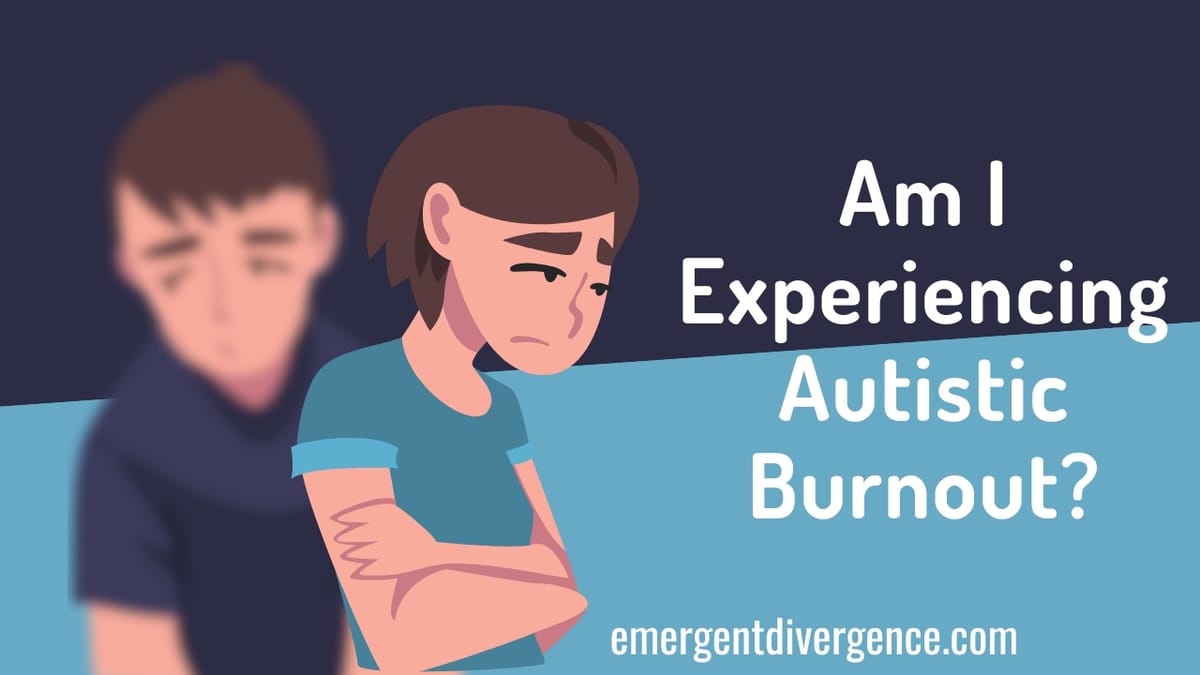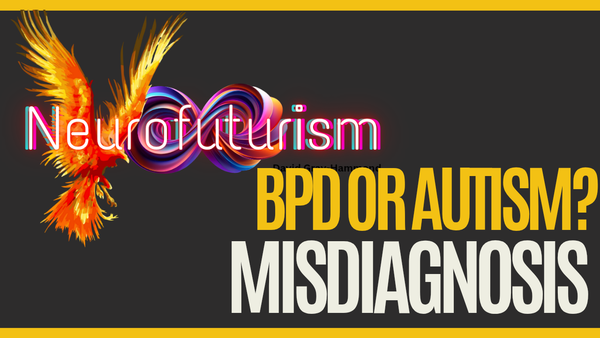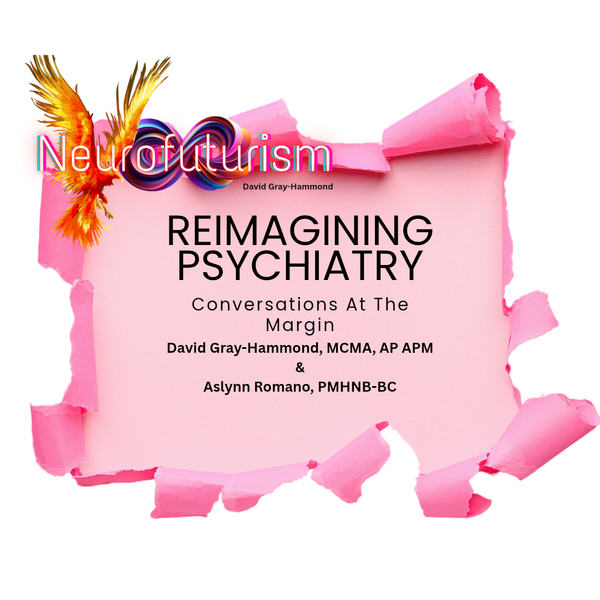Am I Experiencing Autistic Burnout?
Autistic burnout arises from the relentless demands of a non-accommodating world, leading individuals to exhaust their cognitive resources. The concept of energy accounting, illustrated by spoon theory, helps manage daily energy like limited spoons. Recovery requires proactive rehabilitation, gradua

Many of us first come to discover our Autistic selves through the experience of Autistic burnout. Living in a world that does not accommodate our needs coupled with not even knowing we need those accommodations can make the management of our cognitive resources a challenge. In simple terms, that is why burnout happens. We are living beyond our cognitive and attentional capacity for an extended period. The demands of life don't care if we have the capacity to cope, they relentlessly pursue us, forcing us to create production out of nothing. Previously I have spoken about burnout in terms of monotropism and monotropic split. While they remain the engine that I believe creates the foundation for Autistic experience, I wanted to focus more on the concepts of energy accounting and rehabilitation.
Spoon Theory & Energy Accounting
Energy accounting is the concept of managing your cognitive and physical energy in order to maximises your ability to engage with and fulfill demands and tasks. This is widely understood in the Autistic community through the idea of spoon theory, which while originally created by a member of the chronic illness community, has been successfully adopted as a way for Autistic people to communicate and manage their needs and cognitive capacity.
The basic principle of spoon theory is that our energy for the day is divided into unit represented by spoons. We have a finite number of spoons each day, and different tasks and demands cost a varying amount of spoons. An Autistic person who has plenty of spoons for the day may start their day with 20 spoons. It costs one to shower, another to brush their teeth, two to get dressed, and another one to make breakfast. Their morning routine has now left them with 15 spoons. If they work, their work day may cost them most or all of those spoons, leaving them with little to fulfill tasks at the end of the day.
In this respect, we can now begin to understand why something like housework may be a struggle for an Autistic person. They are already using their spoons to fulfill other demands, and do not have the capacity to complete such tasks. They could borrow spoons from tomorrow, but that means starting the day off in a deficit of spoons and having even less to work with. When a person is forced to live this way for an extended period of time, it gets to the point where they no longer have an energy budget for any tasks. This is Autistic burnout.
Unfortunately, burnout doesn't make demands go away. There are still demands in life that we have to take part in, regardless of our capacity. The issue is that this forced participation can have serious consequences for our mental health and wellbeing, we have to rehabilitate ourselves to increase our capacity (more on this later). In terms of burnouts impact on our mental health, their is a section in my new book (A Guide to Autism and Psychosis) on it's relationship with psychosis. You can also read further writing on burnout in the Creating Autistic Suffering series.
What Does Autistic Burnout Feel Like?
Burnout is unique to the person, what is true for me may not necessarily be true for others. There are however some features that people might relate to in my own experience. Burnout has traditionally been understood as being similar in presentation to depression. I would argue against this, however. Burnout for me feels distinctly different. Where as depression feels like hopelessness and failure, burnout for me feels more likely an absence of myself. As my capacity reduces, my ability to think, feel, act, and relate to things as David disappears. It's like being locked in a body that is slowly shutting down.
Rather than being a solely psychological experience, I feel burnout deep in my body. Walking feels like wading through thick mud, and forming words and sentences feels like trying to calculate complex maths in a language i'm not familiar with. I can not process information, and what information does make it's way into my mind is often lost within minutes. Autistic burnout feels like more than a mental health problem, it feels like a trauma to my whole body mind. It's as though I have suffered a serious injury, and like with any injury, I have to rehabilitate myself.
How Do I Recover From Autistic Burnout?
People incorrectly assume that the way to deal with burnout is to stop, rest, and recover over time. This can actually be quite harmful. If burnout is an injury, it is more important to rehabilitate that injury. If one breaks their leg, we do not simply stop using the leg, we go through the process of rebuilding is strength and usefulness in order to have a functioning leg again. Going back to spoon theory, I like to think about this in terms of replacing spoons where they have been absent.
Doing this means being willing to push the boundaries a little. Not necessarily doing all the things at once, but instead building strength gradually and with precision where it has been lost. So rather than stopping and doing nothing, we are slowly working out our bodymind the way a physiotherapist might direct us to safely rebuild strength in an injured limb. It is a slow process, and requires us to have patience, and a level of self-control so that we don't over-extend our capacity again.
Final Thoughts
Autistic burnout doesn't have a specific look, anymore than Autistic people themselves do. Like any group of people, our appearance and experiences are varied. Some talk about how burnout changed them permanently. My response to this is that it should change you permanently. If we do not change and adapt, we will keep repeating the actions that led us to burnout in the first place. Despite the suffering and struggle that comes with Autistic burnout, it is a transformative process, and managed in the correct way, we can come out the other side better than when we went into it.


